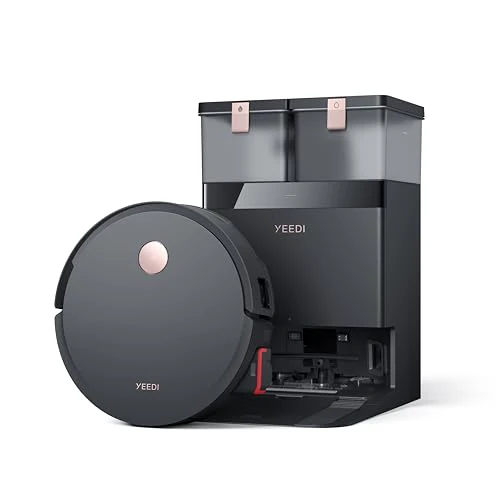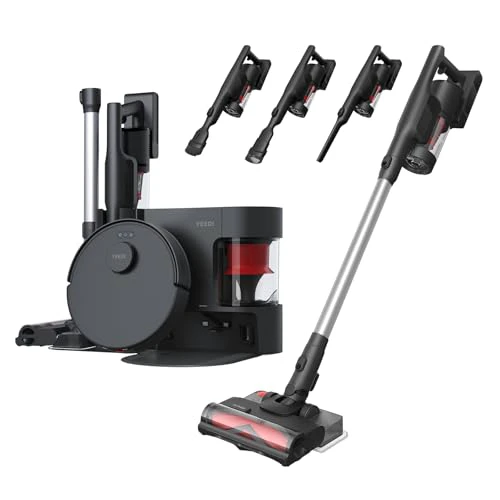Best Pillars
The best pillars are those that provide strong support and stability for structures, whether they are architectural or metaphorical. They are essential for the strength and longevity of buildings, bridges, and other constructions, as well as for the success and resilience of organizations and societies. The best pillars are made of durable materials, such as stone, concrete, or steel, and are carefully designed to withstand the forces they will encounter. They are also strategically placed to distribute weight and provide balance, ensuring the overall stability and integrity of the structure they support.
Advertising Disclosure
You Might Like
Best Robotic Vacuums %202'%3e%3cpath%20id='Vector'%20d='M15.75%2025.875C15.4621%2025.875%2015.1741%2025.7653%2014.9548%2025.5452C14.5153%2025.1058%2014.5153%2024.3939%2014.9548%2023.9544L20.9092%2018L14.9548%2012.0452C14.5153%2011.6058%2014.5153%2010.8939%2014.9548%2010.4544C15.3942%2010.015%2016.1061%2010.015%2016.5456%2010.4544L22.898%2016.8068C23.5561%2017.4649%2023.5561%2018.5351%2022.898%2019.1932L16.5452%2025.5452C16.3259%2025.7653%2016.0379%2025.875%2015.75%2025.875Z'%20fill='black'/%3e%3cpath%20id='Vector_2'%20d='M18%204.5C25.444%204.5%2031.5%2010.556%2031.5%2018C31.5%2025.444%2025.444%2031.5%2018%2031.5C10.556%2031.5%204.5%2025.444%204.5%2018C4.5%2010.556%2010.556%204.5%2018%204.5ZM18%202.25C9.30164%202.25%202.25%209.30164%202.25%2018C2.25%2026.6984%209.30164%2033.75%2018%2033.75C26.6984%2033.75%2033.75%2026.6984%2033.75%2018C33.75%209.30164%2026.6984%202.25%2018%202.25Z'%20fill='black'/%3e%3c/g%3e%3c/svg%3e)

eufy Robot Vacuum Omni S1 Pro with All-in-One Station, HydroJet Robot Vacuum and Mop Combo, Eco-Clean Ozone, 8000 Pa Suction, Obstacle Avoidance, Auto Mop Washing & Drying, Self-Emptying

eufy S1 with All-in-One Station, HydroJet Robot Vacuum and Mop Combo, 8,000 Pa Suction, Smart Obstacle Avoidance, Multi-Level Mapping, Mop Auto-Retraction, Perfect for Pet Hair

Yeedi S14 Plus Robot Vacuum and Mop, 18,000Pa Suction, OZMO Roller Mopping, ZeroTangle 2.0, TruEdge 3D Sensor, All-in-One Station with Auto Hot Water Washing & Self-Drying, Black

Yeedi C12 Combo Cordless Stick Vacuum & Robot & Mopping, All-in-one Cleaning Combot, with Dual Auto Self-Emptying, 10000Pa Suction & Lightweight, ZeroTangle Brush for Hard Floor, Carpet & Pe
Best Cabinet Door Organizers %202'%3e%3cpath%20id='Vector'%20d='M15.75%2025.875C15.4621%2025.875%2015.1741%2025.7653%2014.9548%2025.5452C14.5153%2025.1058%2014.5153%2024.3939%2014.9548%2023.9544L20.9092%2018L14.9548%2012.0452C14.5153%2011.6058%2014.5153%2010.8939%2014.9548%2010.4544C15.3942%2010.015%2016.1061%2010.015%2016.5456%2010.4544L22.898%2016.8068C23.5561%2017.4649%2023.5561%2018.5351%2022.898%2019.1932L16.5452%2025.5452C16.3259%2025.7653%2016.0379%2025.875%2015.75%2025.875Z'%20fill='black'/%3e%3cpath%20id='Vector_2'%20d='M18%204.5C25.444%204.5%2031.5%2010.556%2031.5%2018C31.5%2025.444%2025.444%2031.5%2018%2031.5C10.556%2031.5%204.5%2025.444%204.5%2018C4.5%2010.556%2010.556%204.5%2018%204.5ZM18%202.25C9.30164%202.25%202.25%209.30164%202.25%2018C2.25%2026.6984%209.30164%2033.75%2018%2033.75C26.6984%2033.75%2033.75%2026.6984%2033.75%2018C33.75%209.30164%2026.6984%202.25%2018%202.25Z'%20fill='black'/%3e%3c/g%3e%3c/svg%3e)

SONGMICS Over The Door Pantry Organizer, 6-Tier Pantry Organizers and Storage, Hanging Spice Rack, 6 Mesh Baskets, 2 Guard Rails, Adjustable Height, Holds 88 lb, Wall Mounted, Cream White UK

SONGMICS Over The Door Pantry Organizer, 6-Tier Pantry Organizers and Storage, Hanging Spice Rack, 6 Mesh Baskets, 2 Guard Rails, Adjustable Height, Holds 88 lb, Wall Mounted, Ink Black UKCS
More Home & Kitchen Categories
About Best Pillars
When it comes to architecture and design, pillars are an essential element that has been used for centuries to support structures and add visual appeal. These vertical supports are not only functional, but they also hold symbolic and cultural significance in many societies around the world.
Pillars have been used in various architectural styles, from ancient civilizations to modern skyscrapers. They are typically made from materials such as stone, concrete, or metal, and come in a variety of shapes and sizes. Whether they are ornately carved and decorated or simple and minimalist, pillars can greatly impact the overall aesthetic of a building.
In addition to their practical use in supporting the weight of a structure, pillars often carry symbolic meanings. In many cultures, pillars represent strength, stability, and endurance. They are often used to convey a sense of grandeur and importance, especially in religious and governmental buildings.
From the Parthenon in Greece to the Taj Mahal in India, pillars have been a defining feature of some of the most iconic architectural wonders in the world. They have also played a significant role in the design of public spaces and monuments, serving as a visual representation of power and authority.
Furthermore, pillars are not limited to just supporting buildings. They can also be found in various forms of art and design, such as furniture, sculptures, and decorative elements. Their timeless appeal and versatility make them a popular choice for adding a touch of elegance and sophistication to any space.
As we continue to push the boundaries of architectural innovation, pillars remain a timeless and enduring feature that continues to inspire and captivate us. Whether they are used to create a sense of grandeur or as a functional necessity, pillars will always hold a special place in the world of design and architecture.
